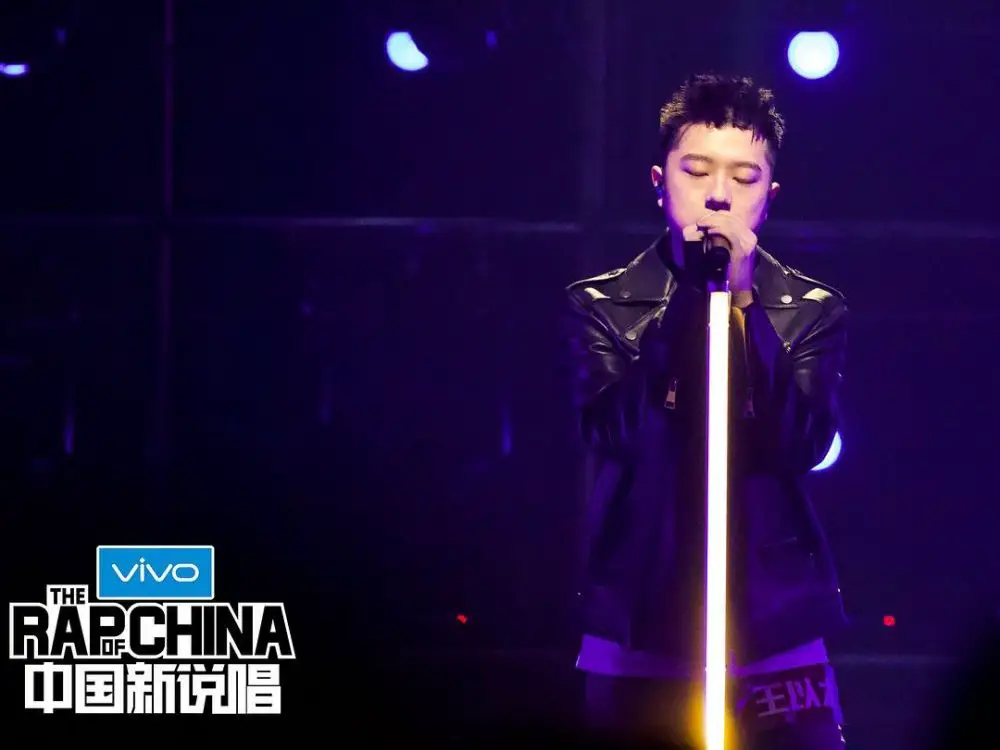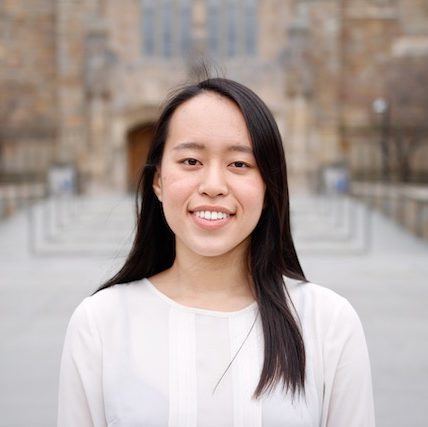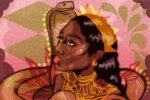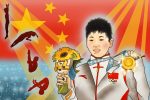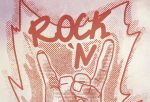The phrase “你有freestyle吗?” or “Do you have freestyle?” was coined by Chinese singer and actor Kris Wu on the hit TV show “The Rap of China.” The phrase is posed as a question each time Wu decides whether a rapper can “pass” the first round of the competition. As of today, the hashtag #TheRapOfChina has over 24 billion views and 69 million discussion posts on Weibo, China’s biggest social media platform.
The phrase embodies how rap and hip-hop culture have become mainstream, buoying the rise of Chinese hip-hop from an underground subculture in the ‘90s to an influential, if not problematic, multimillion-dollar entertainment industry.
https://www.youtube.com/watch?v=CbYIGuUzkQk
“The Rap of China,” China’s first hip-hop TV show, premiered in June 2017. It was immensely successful, accumulating almost 3 billion views by January 2018, accumulating 1.3 billion views in the first month, and $46.4 million in advertising sponsorships. The ongoing fourth season (which began airing in August 2020) features a record-breaking 12,694 contestants from around the world competing for a place on the show.
Rap and hip-hop, by numbers or by influence, are huge in China. China’s most successful rap export, Higher Brothers, has over 22 million views on their most popular song on YouTube, “Made in China,” which features American rapper Famous Dex. VaVa, dubbed the “Rihanna” of China, has 310,000 followers on Instagram and has over 6 million followers on Weibo. She placed fourth in the first season of “The Rap of China.” Her song “My New Swag” was featured in the film “Crazy Rich Asians,” cementing her place in the national and international rap music market. Kris Wu, one of the judges of “The Rap of China” and a Chinese hip-hop star in his own right, is also a key figure within the world of rap, with songs featuring notable artists like Travis Scott, Jhené Aiko, Rich the Kid and Trippie Redd.
Chinese rappers often explore China’s social and political issues and spread Chinese culture internationally through their music. For example, GAI, winner of “The Rap of China” Season 1, raps on topics such as the Great Wall, the Yangtze River and the Yellow River. Rappers from different cities will also use their unique dialects to showcase regional culture. Rap songs that showcase the Sichuan and Chongqing dialects, such as “Hot Pot Soup Base” and “The Boss,” are incredibly popular.
The problem with “The Rap of China,” as an image and performance-based talent show, is that it inherently presents hip-hop as a “look” and “sound” that can be profited on. The show is sponsored by corporations like McDonald’s and Vivo, who are not only given logo and product placement throughout each episode, but also allocate the contestants themselves to perform commercial rap videos as part of a contractual obligation.
The mainstream presentation of Chinese hip-hop undermines hip-hop’s roots in resistance against profit-making influences and subverts hip-hop’s original concept of the genuine presentation of the self. The show also won an Asian Academy Creative Award for “Best Branded Programme or Series” at the end of 2018. In this way, iQiyi (the show’s producer) and China’s approach to hip-hop is a corruption of the art, inherent to the marketization of society. Through Chinese mass media, all of hip-hop’s elements and signifiers are tied to commercial and state interests in an inherently delegitimizing cultural representation. In other words, they’re not “keeping it real.”
Beyond the on-screen commodification of hip-hop culture, iQiyi has turned the show’s slogan, “Rising! Chinese Hip-Hop,” into a trademark and developed more than 200 lines of merchandise, including clothes, accessories, earphones, cellphone cases and VR goggles.
The mass media marketization of Chinese hip-hop through “The Rap of China” calls into question its authenticity to the original cultural-artistic product, as it often appears that current Chinese presentations of rap and hip-hop are purely a trendy aesthetic, or a canvas to promote economic or political agendas.
Firstly, it is important to understand what “hip-hop” is. There are four main “elements” in hip-hop, namely MCing (rap), DJing (production), breaking (dance), and graffiti (graphic art). Hip-hop culture originated in the Bronx in New York in the 1970s, as a form of artistic expression for the African American community. The movement transformed despair, violence and the racial barriers prevalent in marginalized communities into numerous creative outlets. Abandoned buildings and parking lots set the stage for block parties, where DJs and MCs brought the music, sheets of cardboard became dance floors for breakers, and brick walls transformed into canvases by graffiti. For those forced to regularly tolerate acts of racism, violence and the conditions of poverty, rap and hip-hop music highlighted the inescapable reality of their experiences.
Elements of hip-hop culture were first introduced to the Chinese nation through American television shows and films, which were usually smuggled in the form of illegal CDs and DVDs from the West. They quickly grew in popularity among young people, and China began developing its own underground rap battle scenes, street dance culture and general hip-hop style throughout the 1990s and 2000s. Eventually, hip-hop became notable through individual industry success stories like Taiwan’s MC HotDog and Beijing rap group Yin Ts’ang (隐藏). Pop stars like Wang Leehom and Jay Chou incorporated aspects of rap and hip-hop into their music, practically guaranteeing their mainstream popularity. With the development of the internet and hip-hop as a genre, the rap element of hip-hop spread quickly through online communities and forums, which today serve as the backdrop of internet-based talent shows like “The Rap of China.”
With the premiere of “The Rap of China” in 2017, rap music and hip-hop culture became a national sensation. Despite the show’s massive success, China’s state media administration issued a set of regulations banning hip-hop in mass media in January 2018, just months after the conclusion of the show’s first season. They stated that television “should not feature actors with tattoos (or depict) hip hop culture, sub-culture and immoral culture,” resulting in the censorship of various successful contestants and a scramble to rebrand and self-censor.
The second season of “The Rap of China” aired in 2018 under a new Chinese name, 中国新说唱 or “The New Rap of China,” instead of 中国有嘻哈 or “China has Hip-Hop.” With this, Chinese television and internet censors ultimately allowed rap music to thrive — so long as it promoted the ruling Communist Party’s ideology. Chinese hip-hop still features many typical elements of hip-hop culture, like slang (“freestyle,” “skr” and “flex,” to name a few), baggy shirts and dreadlocks, but its former anti-establishment tone has been replaced with a patriotic, uplifting one.
In the show’s first season, its self-proclaimed aim was to “transform hip-hop from a Chinese subculture to a mainstream genre,” but a noticeable shift occurred in the messaging of the second season following the state’s new media regulations. The most obvious change is that of the show’s Chinese title. The first season’s title, 中国有嘻哈 or “China has Hip-Hop,” implies that the forms of hip-hop have integrated into Chinese culture. The characters of “hip-hop,” 嘻哈, traditionally had a negative connotation. If the word hip-hop is mentioned to a Chinese citizen, it brings to mind associated traits such as baggy clothing and dreadlocks, which some consider unseemly. For example, dreadlocks, or 脏辫in Mandarin, are literally translated as “dirty braids.” After the government issued a ban on “hip-hop and immoral culture” in 2018, the show was rebranded in its second season to 中国新说唱, or “The New Rap of China.”
The key difference here is that the title no longer uses the character of “hip-hop” or 嘻哈 anymore, but rather the connotation-neutral term of “rap” or 说唱, which literally translates to “talk-sing.” This suggests a motivation on behalf of iQiyi, the show’s producer, to conform to party censorship lines and rebrand the culture of the show as distinctly Chinese, erasing the origins of hip-hop and all that hip-hop stands for. Prior to the start of filming for the second season, the show’s production team stated that the show’s new mission was to “justify rap music among young people — it can be young, uplifting and full of positive energy.” The term “justify” is a subtle dig, indicating that rap music in its original form is unpalatable to Chinese tastes and that an explanation (and reformation) of hip-hop is needed.
Indeed, “The Rap of China” now possesses a nationalistic air and a particular emphasis on positive messaging. For example, the five judges performed a cypher as the first musical act of the second season’s premiere episode — a spectacle that includes an instrumental segment using traditional Chinese percussion instruments and imagery. Wu repeats the line, “I’m from China so I represent this land,” and positively encourages youth to use hip-hop as a platform for their dreams.
The nationalistic branding of rap music in China didn’t just start with “The Rap of China.” In 2014, China’s state media company, CCTV, published an animated rap video promoting anti-corruption efforts. There was also a rap advocating Karl Marx as someone who really “gets” millennials, with dubious lyrics like “I don’t read magazines, I read Marx and I was born in the 1990s / I am your Bruno Mars / But you are my Venus / My dear Marx.” To promote China’s ambitious geopolitical Belt and Road Initiative, they created a — you guessed it — rap music video.
And don’t even think about expressing political views that deviate from the official ideology. Even just hitting a “like” button on social media could cost you your entertainment career. Most celebrities in China have simply avoided taking a side on social issues, except when they act as Communist Party mouthpieces.
Sun Bayi, a Beijing rapper and former contestant on “The Rap of China,” explained in an interview with South China Morning Post that the “F — tha Police” type of protest hip-hop does not suit his own country.
“Black people use music as a tool of revolution against racial inequality. I think it’s the correct thing to do that they are defending the rights of their race,” Sun said. “In China, people live soundly and peacefully. We don’t need to revolt with music.”
For all of China’s enthusiasm about embracing a culture that originated in the African American community, China’s biggest hip-hop stars and their many fans have largely stayed silent on issues afflicting Black and marginalized communities.
Chinese hip-hop stars were either silent or supported the Communist government when it came to the Hong Kong democracy protests in 2019.
Melo from Higher Brothers posted a picture of the Chinese national flag on his social media accounts with the caption: “Once again, I’m proud to be Chinese.” The rapper CD Rev released a diss track titled “Hong Kong’s Fall.” Jackson Wang, a Hong Kong-born artist, declared on Weibo that he was a “flag bearer determined to side with China”.
https://www.instagram.com/p/B1INtgtB50z/?utm_source=ig_embed&utm_campaign=dlfix
This phenomenon is particularly ironic considering how hip-hop culture has always been explicitly rooted in the principles of authenticity and resistance to authority.
Even with the recent Black Lives Matter movement, which has become international after the police killing of George Floyd, Chinese stars stayed silent.
Wu made no comments on the anti-racism protests to his 51.3 million social media followers on Weibo or to his 7.6 million followers on Instagram. GAI, who has 8.8 million Weibo followers, has also remained silent on the matter. Higher Brothers, VaVa and Jackson Wang have used their platform to speak against racism — but only on Instagram or Twitter, which are blocked in China. On Weibo, the celebrities have made no mention of the movement whatsoever.
The response from Chinese hip-hop stars to Black issues (or lack thereof) exposes the dichotomy between Chinese rap culture and the true roots of hip-hop culture. It brings up a critical question: Can Chinese rappers and fans of Chinese rap create and enjoy this musical genre without this accountability?
Some have claimed that they don’t know enough about the issue to speak up against it, and therefore are simply unable to understand what lies at the core of hip-hop as a genre.
“I know racism in theory, but it’s hard to empathize with it,” proclaimed Sun. “I’m not black. I have never lived in America. What can I say about it?”
Yet BTS, the biggest global K-pop phenomenon, and an artist group who also is not Black, has donated $1 million to the Black Lives Matter movement.
Still, it’s grossly erroneous to say that all Chinese rappers and hip-hop artists lack this authenticity or that “The Rap of China” is the sole reflection of Chinese hip-hop culture.
Al Rocco, a competitor who was eliminated in the first season of “The Rap of China,” released a diss track titled “The Rap of China Diss.” This song was targeted at the show and the judge who kicked him off, mocking the judge’s qualifications and their pandering along party lines. Another diss track on ZHONG.TV, one of the primary curators of Chinese hip-hop content, argues that most rap in China has always been underground, not mainstream and homogenized like in the show, hence “f — 中 国有嘻哈 [The Rap of China].” There is definitely a part of the Chinese hip-hop community that not only sees “The Rap of China” as negating hip-hop’s anti-establishment core, but also pushes counter-hegemonic messages to an online audience that had never truly been exposed to the original principles of hip-hop before.
Bohan Phoenix, an Asian American rapper, distinctly articulates the struggle to keep it real as a rapper in China. In an interview with US-China Today, he discloses, “There’s definitely hip-hop artists in China, that want to express something more provocative, something more challenging, that’s being censored more.”
Phoenix also explains that many rappers stick to party censorship in order to simply exist as a rapper. “If you’re functioning in an environment like China, if you’re playing a game here, you have to know the rules. They tell you ‘don’t talk about the government, don’t talk about drugs and guns and killers and you’re good.’”
As hip-hop culture adapts and changes within each environment that it comes into contact with, it would be irrational to expect hip-hop to keep its original form, to expect rappers in China or in any other country to rap about Black culture or Black struggles. The heart of hip-hop culture encourages artists to express personal struggles and inequalities while remaining true to their authentic selves. However, with the global adoption of hip-hop, it’s also imperative for artists and fans not to forget hip-hop’s history. As the musical genre originated from the struggles of the African American community and their fight for civil rights, rappers and hip-hop artists have an obligation to represent that heritage faithfully.
The problem with Chinese hip-hop artists is not the fact that they are hip-hop artists or that they form their own interpretation of hip-hop, but rather their refusal to acknowledge the “dirty” origins of their craft, amounting to a regional erasure of Black music and, ultimately, Black culture. In that sense, online talent shows like “The Rap of China,” which has immense mainstream influence, are dangerous. “The Rap of China” forgoes the history of hip-hop as a “real,” critical and oppositional subculture for an inherently inauthentic mass media production. This erasure of hip-hop’s roots — of what makes hip-hop a powerful tool of expression and not just another form of music — is incredibly problematic and ought to be considered as such on a national scale.


